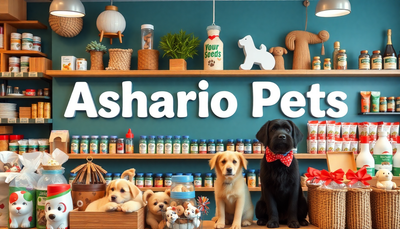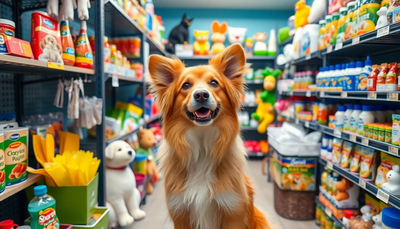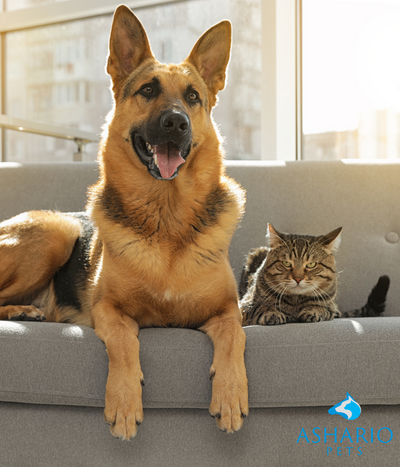Understanding Your Pet's Dietary Needs: How to Personalize Their Meals
As pet owners, we often find ourselves wondering what our furry friends should eat to maintain their health and happiness. Understanding your pet's dietary needs is crucial for providing them with a personalized meal plan that caters to their specific requirements. In this blog post, we will explore the importance of a tailored diet for your pet and offer insights into how to create a suitable meal plan.
First and foremost, it is essential to recognize that every pet is unique. Factors such as age, breed, weight, activity level, and health conditions all play a significant role in determining the right diet. For instance, puppies have different nutritional needs than adult dogs, while senior pets may require diets that support joint health and maintain their weight. Therefore, consulting with a veterinarian before making any changes to your pet's diet is always a good idea.
Once you have assessed your pet's specific needs, the next step is to choose the right type of food. There are several options available, including dry kibble, wet food, raw diets, and homemade meals. Each option has its advantages and disadvantages, and it is crucial to consider what works best for both you and your pet. For example, some pets may thrive on a raw diet, while others may prefer the convenience of kibble.
When selecting food, it is essential to read the labels carefully. Look for high-quality ingredients, and avoid products with excessive fillers or artificial additives. A good pet food should contain a balance of proteins, carbohydrates, fats, vitamins, and minerals to support your pet’s overall health. You can also consider incorporating fresh fruits and vegetables into their meals to provide additional nutrients and variety.
Portion control is another vital aspect of personalizing your pet's meals. Overfeeding can lead to obesity and other health issues, while underfeeding can result in malnutrition. Following the feeding guidelines provided on the pet food packaging can be a good starting point, but it is essential to adjust portions based on your pet's individual needs and lifestyle. Regularly monitoring your pet's weight and body condition can help you make the necessary adjustments to their diet.
Furthermore, it's essential to establish a feeding routine for your pet. Consistency helps maintain their digestive health and makes mealtime a more enjoyable experience. Whether you choose to feed your pet twice a day or several smaller meals throughout the day, sticking to a schedule can help regulate their appetite and energy levels.
Additionally, be observant of your pet's reactions to their food. Some pets may have food sensitivities or allergies, leading to digestive upset or skin issues. If you notice any adverse reactions, consult your veterinarian for alternative dietary options.
In conclusion, understanding your pet's dietary needs and personalizing their meals is crucial for their overall well-being. By considering factors such as age, weight, and health conditions, you can create a tailored meal plan that supports their unique requirements. Remember, a healthy pet is a happy pet, and investing time into their nutrition will pay off in the long run.
Stay connected with Ashario Pets through our website at https://ashariopets.ca/. For the latest updates, promotions, and adorable glimpses into the lives of our furry friends, follow us on Instagram and TikTok @ashariopets. Questions or inquiries? Reach out to us at 647-564-4433 or drop us an email at mailto:info@ashariopets.ca.
Contact Information:
- Address: 1111A Finch Ave West, Unit 2
- Phone: 647-564-4433
- Website: https://ashariopets.ca/
- Email: mailto:info@ashariopets.ca
- Instagram: @ashariopets
- Tiktok: @ashariopets




